
A webinar titled “Herbs Webinar 2021: Herbs for Respiratory Health” was jointly organised by Malaysia Holistic and Herbal Organisation (MHHO), UTAR Centre for Biomedical and Nutrition Research (CBNR) and UTAR Centre for Agriculture and Food Research (CAFR) on 20 December 2021 via Zoom and Facebook Live. Sponsored by Isolab Sdn Bhd, the event saw 140 participants in attendance.
Speaking at the webinar were MHHO Medical Doctor Dr Inthirani Sivarajah KMN, MHHO Medical Doctor and TCM practitioner Dr Lu Zhi Gang, UTAR Faculty of Medicine and Health Sciences (FMHS) Centre for Research in Traditional Chinese Medicine Chairperson Assoc Prof Dr Te Kian Keong and Sunway Healthcare Group Sunway TCM Centre Senior Manager-cum-Registered Pharmacist (special interest in Herbal Medicine) Chan Si Yan. There were two moderators at the webinar, namely CBNR member-cum-Faculty of Science (FSc) Department of Allied Health Sciences lecturer Dr Ho Lai Yee and MHHO Director-cum-Wellness Medical Qigong (WMQ) Founder Master Tan Soo Kong.
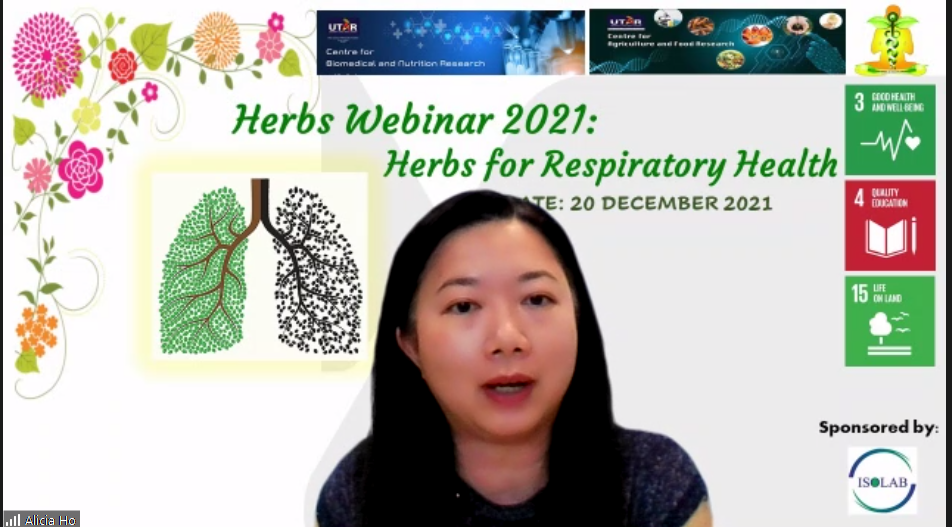
Dr Ho during the webinar
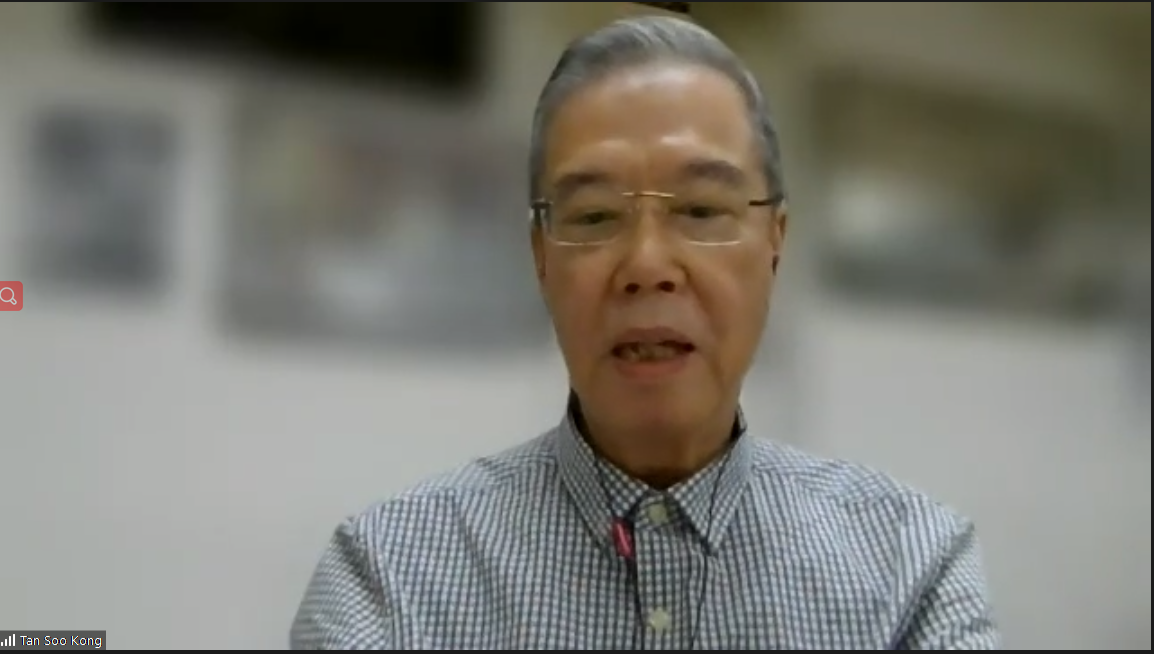
Master Tan during the webinar
The webinar aimed to bring a group of imminent scientists and specialists together to share their knowledge on herbs that are beneficial for respiratory health to students, faculty staff, researchers, scientists, practitioners and the public.
Organising Chairperson-cum-FSc Department of Allied Health Sciences lecturer Dr Teh Lai Kuan expressed her gratitude to the organising committee, sponsor and participants during her welcome speech. She said, “This Herbs Webinar 2021 is our fifth event related to herbs. Since 2017, we have been organising the Local Herb’s Day Series. Last year, due to the pandemic, we held the first online Local Herb’s Day Series titled ‘Herbs Webinar 2020: Sustainable and Contemporary Practices’. Today’s event is our second online series that focuses on ‘Herbs for Respiratory Health’.”
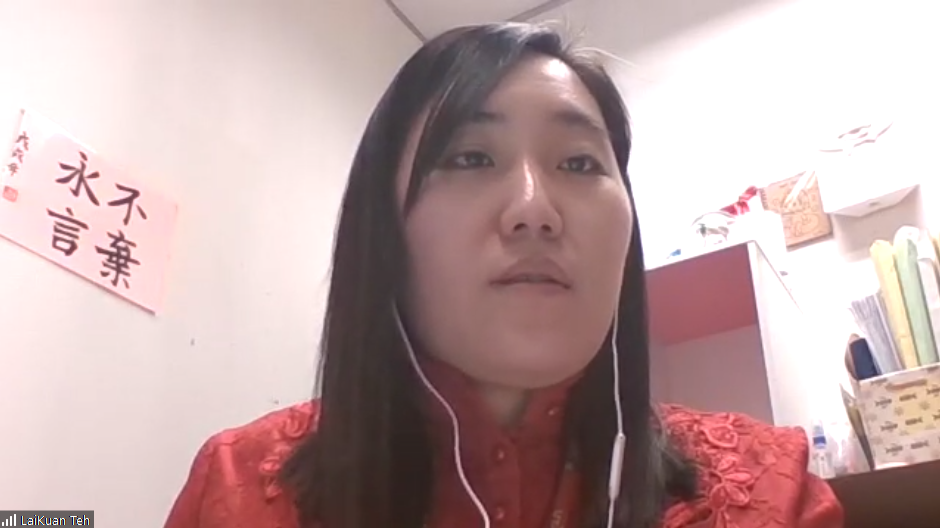
Dr Teh welcoming the participants
A video was played at the webinar to introduce the Local Herb’s Day Series. Following the video was welcome remarks by CBNR Chairperson-cum-FSc Department of Biological Science Dr Eddy Cheah Seong Guan.
Dr Eddy Cheah said, “As one of our committees’ outreach initiatives, the Local Herb’s Series aims to enlighten and promote awareness of the value and many benefits of herbs. In Malaysia, we are blessed that we are rich with rainforests that have various natural species of medical herbs. Despite rapid modernisation, herbal medicine is still popular in Malaysia, especially in rural areas. Herbs are gaining acceptance by the middle-income and upper-income classes, in line with the new wave of alternative medicine. With the advancement in pharmaceutical research and accumulated safety data, there has been increasing recognition of herbal medicine by health professionals. Today’s webinar focuses on the theme ‘Herbs for Respiratory Health’, with four experienced speakers present to share with us their expertise in this area.”
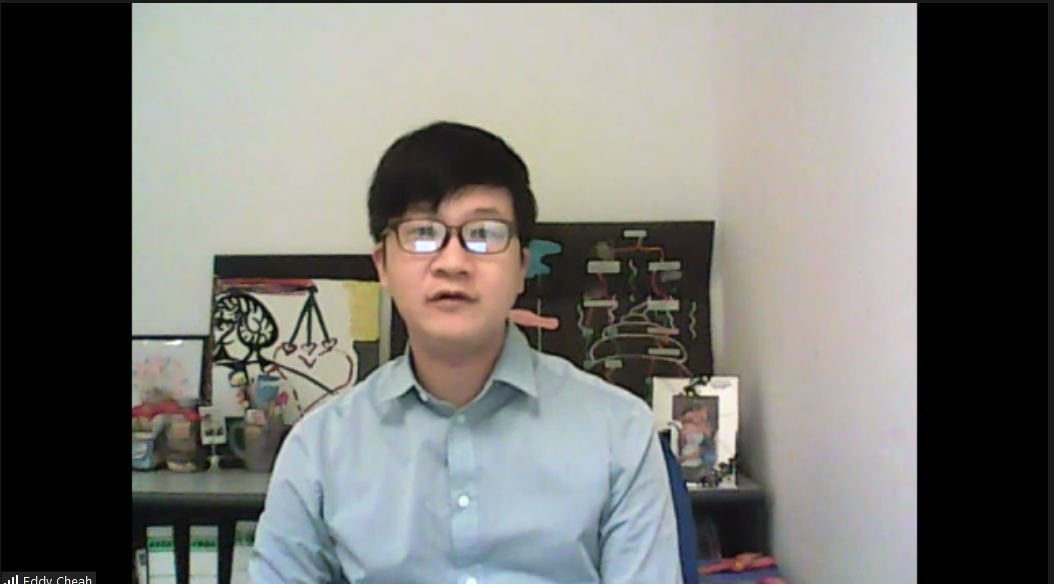
Dr Eddy Cheah delivering his opening remarks
The webinar featured four talk sessions by four invited speakers. The first session was conducted by Dr Inthirani on a topic titled “Our Respiratory System”. According to Dr Inthirani, our respiratory system is divided into two; the upper and lower respiratory system. The lower respiratory system consists of the trachea which is divided into right and left bronchus. The right lung has three lobes, while the left lung has two lobes. The lungs also consist of functional units known as the alveoli.
“Alveoli are the functional unit of the lung where gas exchange takes place. If the alveoli are affected, the function of gas exchange will decrease. In any case of infection, the lungs would collapse and blood would fill into the lungs. Bacteria or virus usually enters the body through the airway. Once the infection gets into the respiratory system, the organism starts to multiply either in the upper or lower system. The symptoms will show up depending on the aggressiveness of the organism and your immune system. As time goes by, if the infection becomes severe, there will be inflammation in the air sacs, called alveoli, and the alveoli will be filled with fluid or pus. This will lead to symptoms like fever, breathing difficulties and cough (containing yellow or brown mucus). The patient will also feel more difficult to swallow when he or she breathes,” said Dr Inthirani.
She further explained, “If a person has a good immune system, the infection would not play out. Some may not show symptoms of infection if their immune system is strong. However, they will still carry the virus and the virus are highly infectious. These types of viruses are usually spread through droplets and air. The aim of our herbal treatment is to help patients preserve or improve their lung functions. Herbal treatment is found to act as anti-microbial, anti-viral, anti-inflammatory and immune stimulatory. Besides that, we need to have good food and good sleep to improve our immunity.”
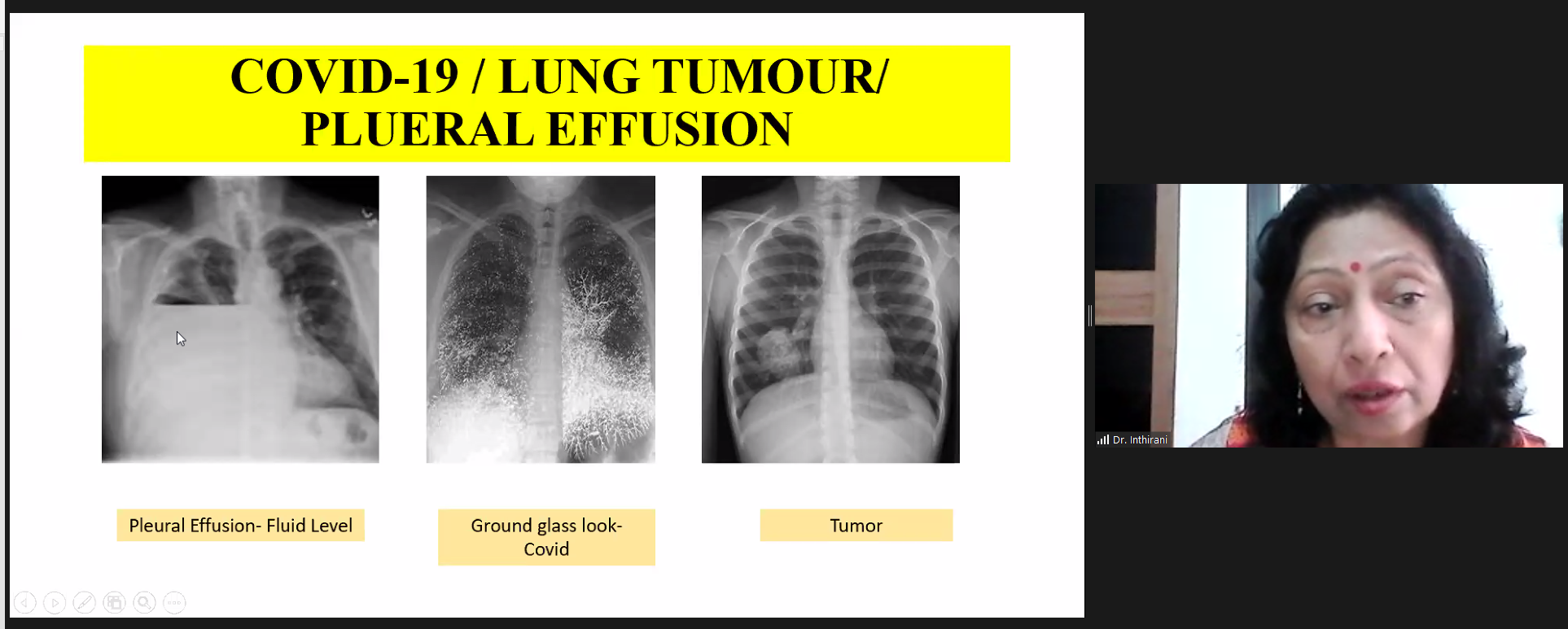
Dr Inthirani presenting the X-ray of lungs that are infected by virus
Dr Lu spoke on the topic “The Comparison between Traditional Chinese Medicine and Western Medicine on Pulmonary Infection”. He said, “Traditional Chinese Medicine (TCM) and Western medicine have different understandings of aetiology, pathogenesis and pathology, as well as different diagnosis and treatment methods. In Western medicine, lung infections refer to pulmonary infections. It is treated as a common disease before the pathological diagnosis is confirmed. The diagnosis of the Covid-19 is confirmed after the nucleic acid test positive. According to the TCM theory,the lungs is connected to the large intestine; constipation occurs during pulmonary infection with internal heat syndrome. TCM uses the Four Methods Physical Examination (四诊) and Eight Principles Syndromes (八钢) to determine the nature of the pathological changes, based on the patient’s respiratory symptoms, thereby providing the basis for treatment with herbal medicine.”
He added, “The ancient Chinese medicine Shangju Yin (桑菊饮) is used in the treatment of colds, influenza, tonsillitis and bronchitis. It helps in regulating immune function and modulating body immunity to resist pathogenic microorganisms. Modern medical pharmacological studies have proved that Shangju Yin has anti-pathogenic microorganisms, especially against various types of viruses, including Gram-positive and Gram-negative bacteria.”
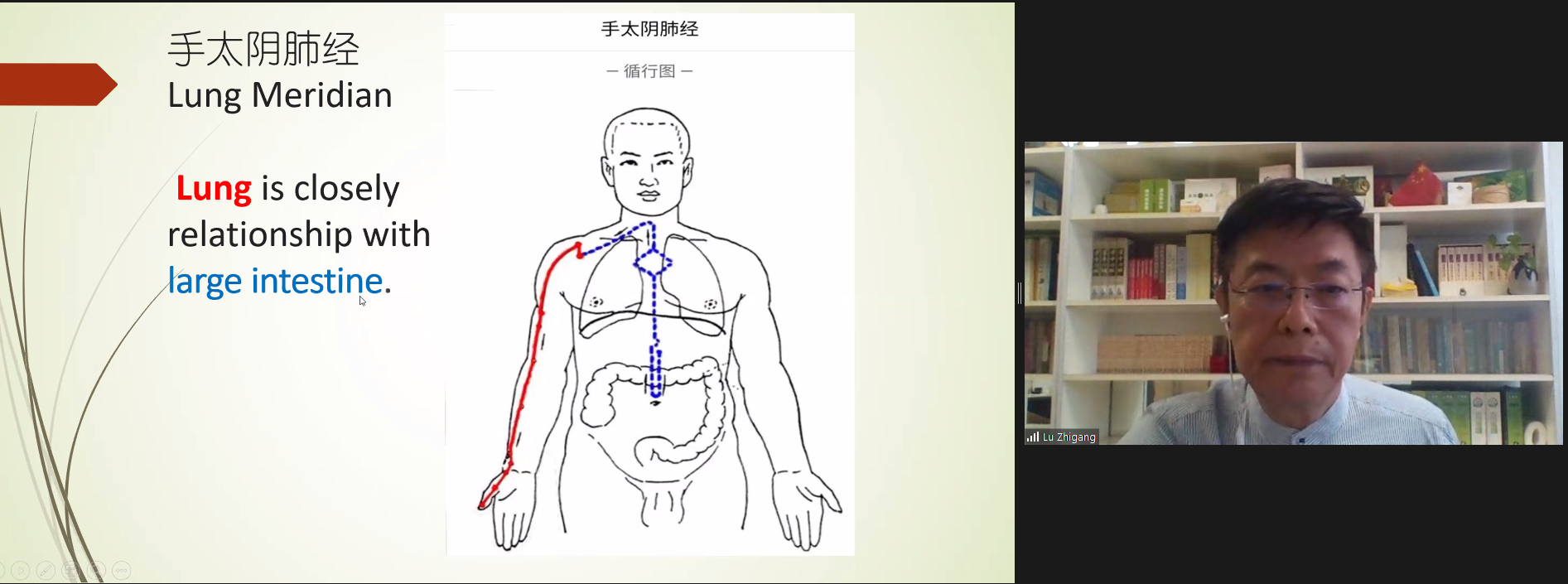
Dr Lu explaining the lung meridian in TCM
During his talk session titled “From A TCM Perspective: Harmony of the Lung System”, Dr Te spoke on the zang-fu (脏腑) organ’s concept, the five elements theory (五行), the understanding of lungs from the Chinese Medicine perspective, as well as the harmony of the lung system with Covid-19. He also presented the Chinese Medicine Practice Guidelines for the Covid-19 in Malaysia. According to Dr Te, TCM Malaysia is doing telemedicine to the public.
“According to the Chinese Medicine Practice Guideline for Covid-19 in Malaysia, the red zone residents are advised to drink Five Leaves Drink (五叶饮), while the Covid-19 contacts are advised to drink Lian Hua Five Leaves (莲花五叶饮). For the post-Covid-19 patients who are suffering from cough and fatigue, they are advised to take the combination of Xing Sha Liu Jun Zi decoction and Zhi Sou San (香砂六君子汤合止嗽散) . To cure fatigue and diarrhoea, the post-Covid-19 patients are advised to take Shen Ling Bai Zhu San (参苓白术散),” Dr Te said.
Throughout his talk session, Dr Te recommended various Chinese herbs for the prevention and treatment of the Covid-19. However, he stressed on the necessity that the public should consult the Chinese Medicine Team before purchasing any Chinese traditional medicine, especially if they are tested positive of Covid-19. He explained that different people may need different Chinese medical treatments according to their body condition.
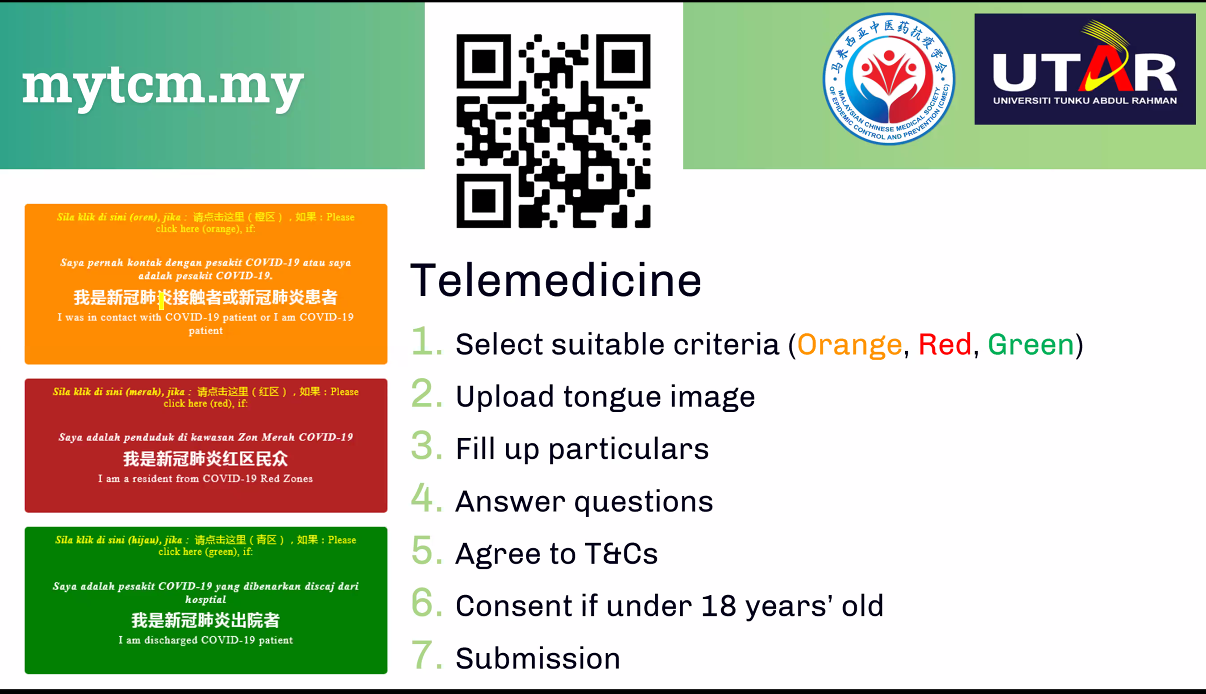
The QR code for Telemedicine
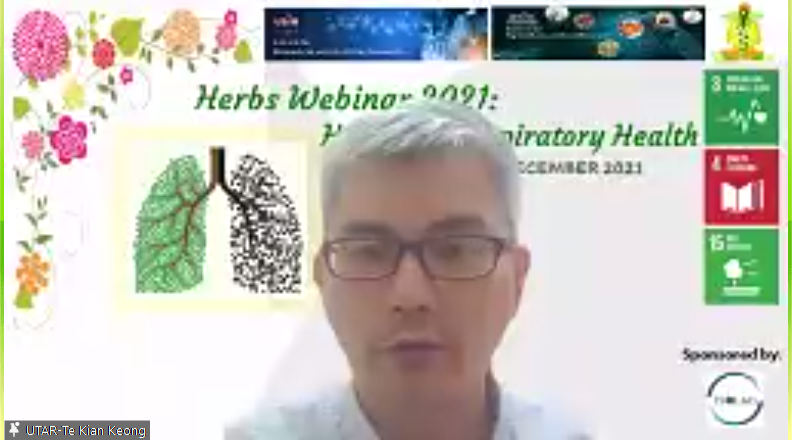
Dr Te during the webinar
Chan’s talk session was titled “The Importance of Quality and Safety of Herbs for Respiratory Health”. She stressed on the three pillars of ideal herbal drugs and their rational use. She said, “Many people misunderstand that all herbs are safe because they are natural plants. However, some herbs may harm the body. So we have to look into the three pillars of ideal herbal drugs, which are quality, safety and efficacy, besides looking into their rational use.” She also spoke about the quality of herbs, the toxicology of herbs, adverse or uncomfortable events related to herbs as well as herb-drug interactions.
She added, “We must be very careful when we use Chinese herbs to treat patients. Some patients might be allergic to certain herbs and this could potentially cause death if it is not administered properly. There was an incident about a young patient who suffered from internal bleeding due to the misuse of herbs. After investigation, they found out that this young patient had consumed homemade kadha (an Ayurvedic remedy that helps in fighting seasonal infections) daily for the past five months. It was believed that toxins were excreted from the kadha.”
“Many TCM practitioners tend to look over the adverse effects of herbal medicine or dietary supplements in G6PD deficiency. So, I advise all TCM practitioners to be careful of the adverse effects. To provide better treatment to patients, we need to be aware of the safety of herbal medicines. We should have evidence-based and value-based medicines to improve the whole medical system for our nation,” said Chan.
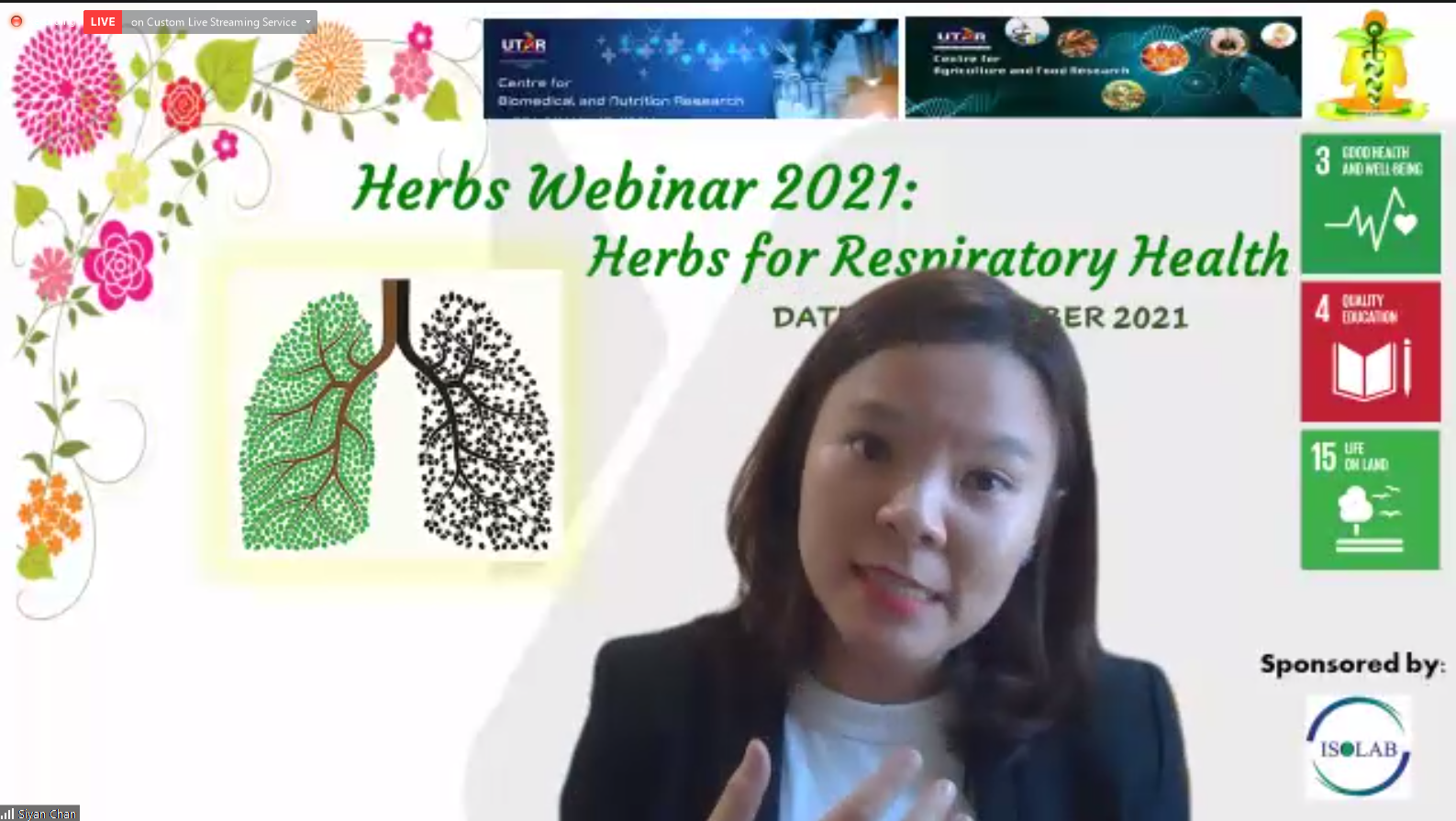
Chan sharing the importance of considering the quality and safety of herbs
Towards the end of the webinar, Dr Inthirani, Dr Lu, Dr Te and Chan received a certificate of appreciation from the organising committees. The organising committees also gave Master Tan a certificate of appreciation for being the moderator.
FSc Dean Assoc Prof Dr Lim Tuck Meng said during the closing remarks, “It is very important that we have the accurate and correct information in this era before we make any good decision, especially in terms of receiving treatments. It is known that the Asian civilisation has a long history of fighting against pandemics, particularly in China, where most of these are probably recorded, and today we learn a lot from their experiences and techniques which could be modified to suit our modern life. It is interesting to see that the members of the faculty have this passion to continue these activities which started in 2017. I believe that you would agree with me that they have achieved the objective of this event when we saw many questions posted and interesting discussions held after the end of each talk. I hope that the effort will be continued in the future.”
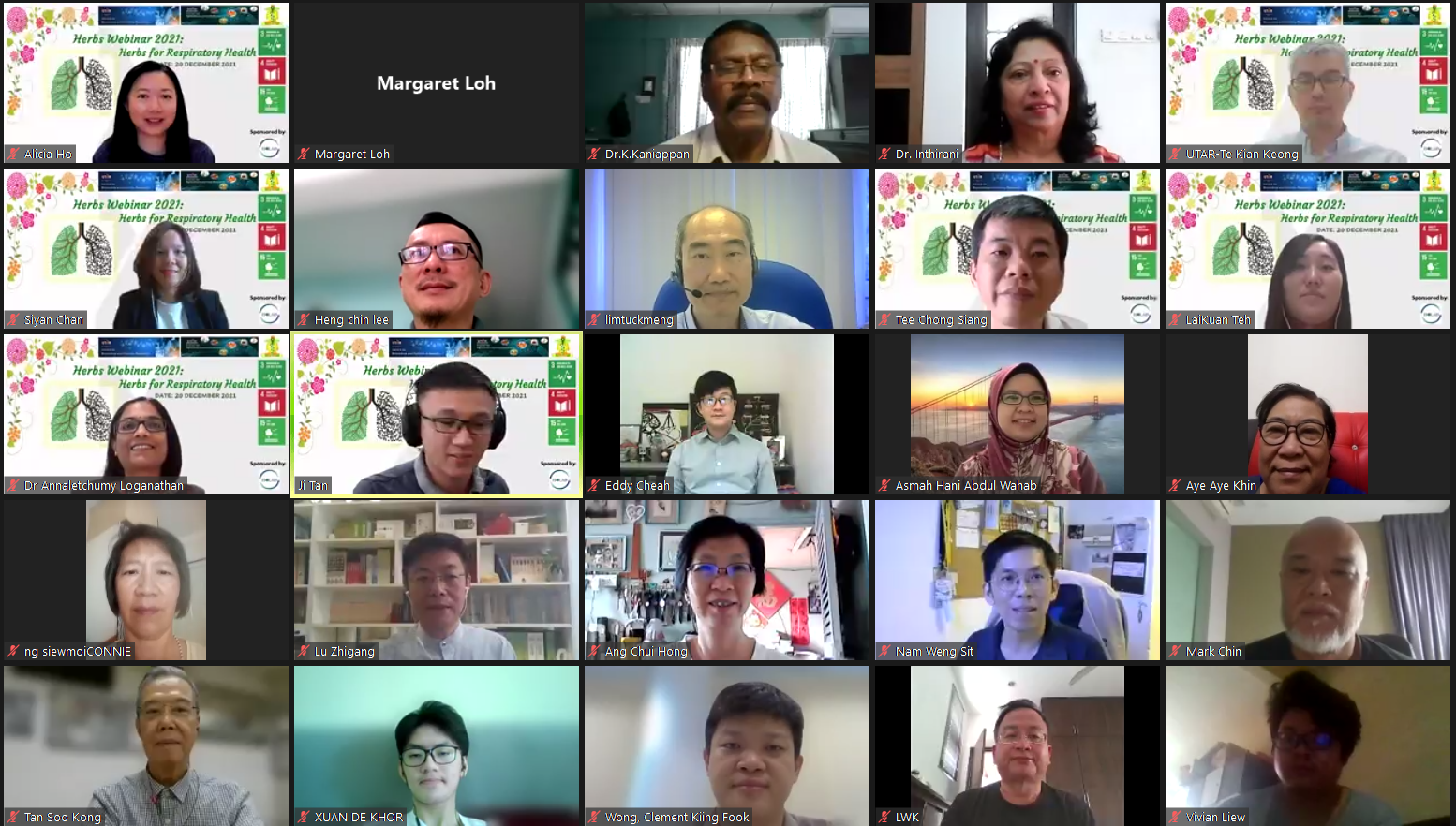
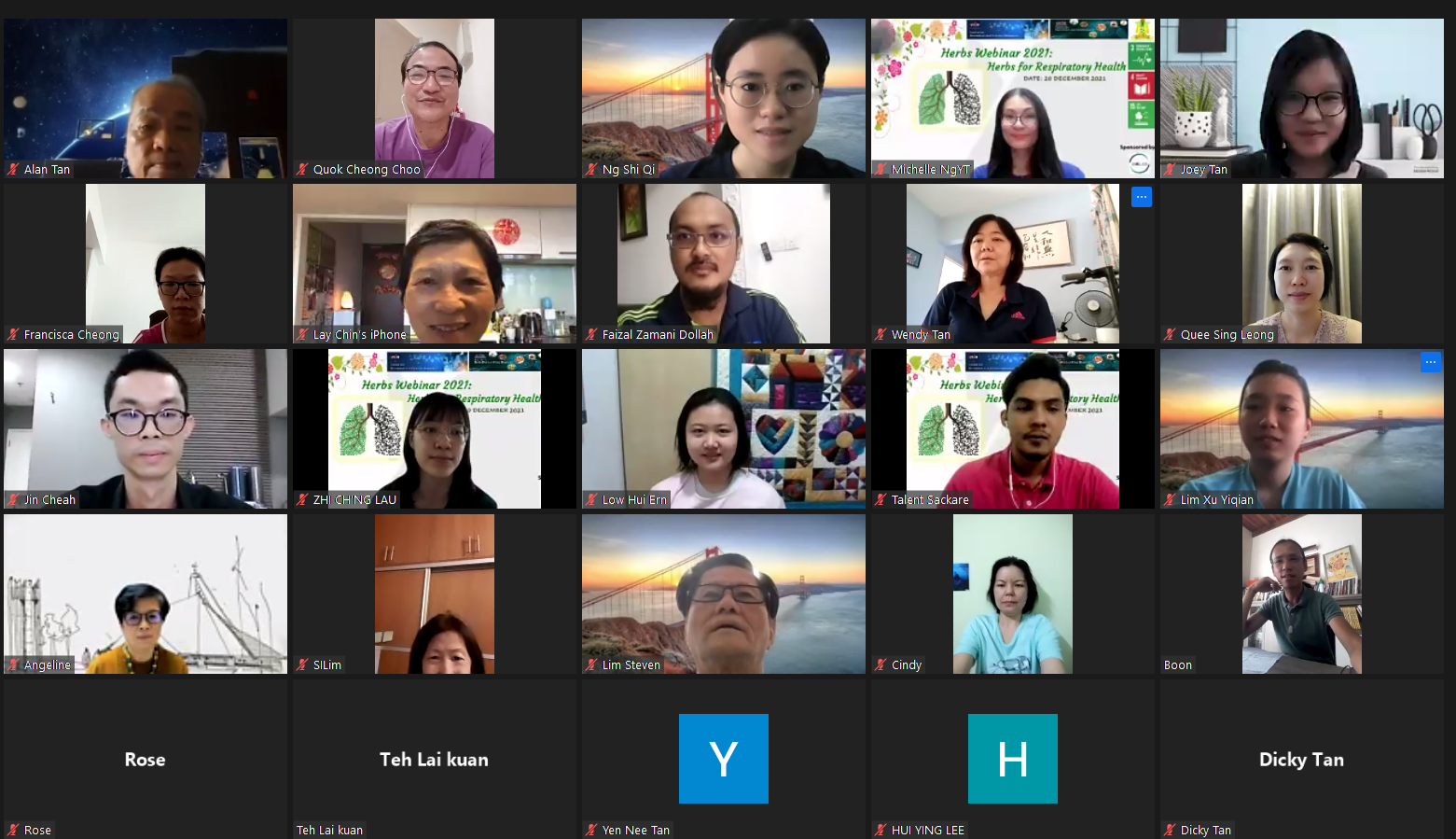
The speakers taking group photos with participants
© 2022 UNIVERSITI TUNKU ABDUL RAHMAN DU012(A).
Wholly owned by UTAR Education Foundation (200201010564(578227-M)) LEGAL STATEMENT TERM OF USAGE PRIVACY NOTICE